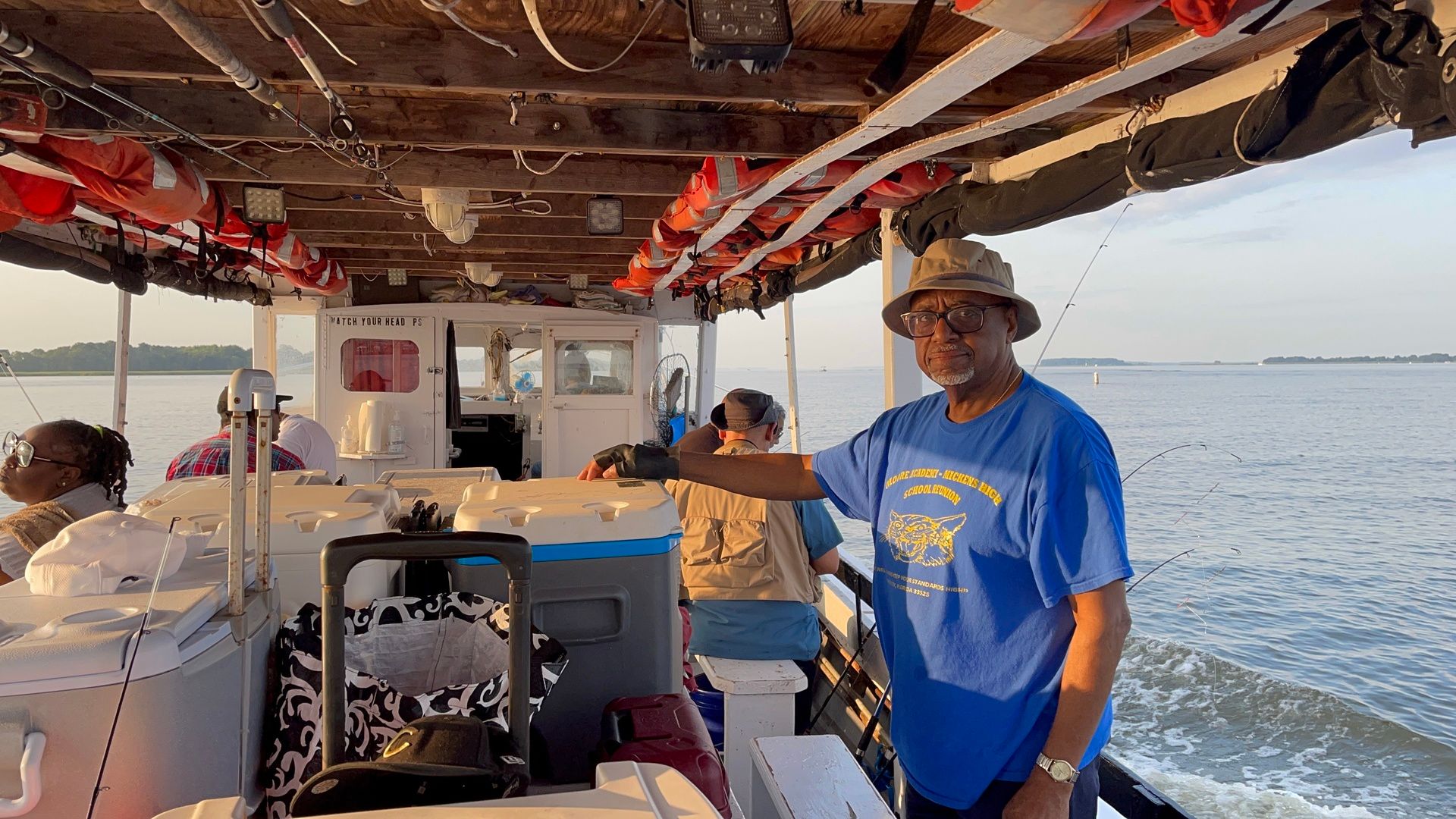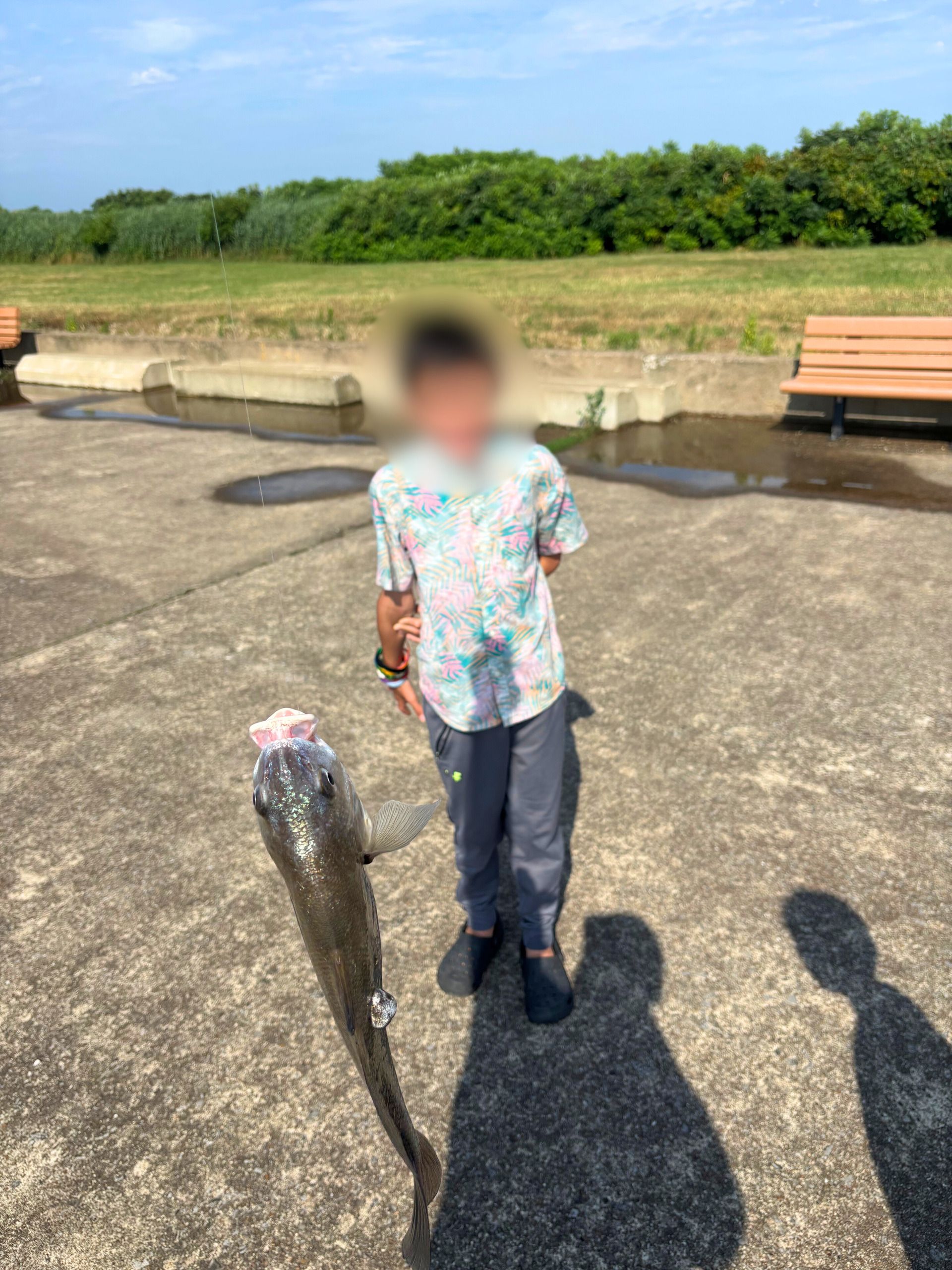Disclaimer: This post may contain affiliate links, which means I may receive a commission for purchases made through the links. I only recommend products I have personally used or recently purchased but not yet used.
The Argument
Growing up, I was never enthusiastic about catch-and-release fishing (CARF). That didn’t stop me from honing my skills as a fisherman at Centennial Lake in Maryland, but all of that practice was in service to, hopefully, being able to put fish on the table. Later in life, I realized that I don’t really have a taste for the most popular game fish in the U.S., the largemouth bass, but the practice was helpful.
I articulate my issue with CARF in this episode on my YouTube channel:
Looking back, it’s one of the videos I’m most proud of and effectively articulates my issues with CARF. My dad likes this video a lot too, which is icing on the cake, since my entire fishing ethic comes from him. Being anti-CARF is something I’m proud to pass on to my kids. However, as the title of this week’s newsletter states, there’s nuance to my anti-CARF stance that, in subsequent conversations and observations, I wanted to revisit and make room for what I hope is a better-formed philosophy.
The hill I’ll still die on.
American culture is rooted in exploitation and the denial of personhood to human and non-human groups wherever encountered. CARF, as it is most commonly practiced in the U.S., is no exception. Entire content creator careers, television networks, and corporations are built around the idea that Americans will enthusiastically go fishing for the sole purpose of catching fish they have no intention of consuming.
My anti-CARF stance is rooted in the exploitative entertainment aspect of the practice. Any harm done to relatives should be accounted for in some way that is meaningful to the community being harmed. There is compensation somewhat baked into fishing as it is practiced in this country in the form of excise taxes from fishing licenses that are then used for conservation and habitat management.

The man who taught me fishing is first and foremost about putting food on the table.
Other than this provision, however, people who fish in this country are free to catch as many fish as they wish, so long as they obey the law. But laws and policies change, and given the current administration’s severe allergy to systems of accountability, government spending on environmental protection is waning sharply.
There are lots of ways one can account for the harm they do with CARF, from sharing stories that encourage others to engage and care for fish relatives, to actively working to protect the land and waters that sustain fisheries.
This summer, I took my youngest and a friend fishing on a pier in Sandusky, OH. The 8-year-old friend had only been fishing with two other people — their uncle and their father — so both my 7-year-old and I were excited to show them the ropes. In the end, the 8-year-old was the only one to catch a fish, but the memory and experience were significant.

Freshwater drum caught by Lenny in Sandusky, OH.
Humans specialize in our ability to make things matter at a deep and visceral level through experience and storytelling. Those deeply felt experiences can change behavior that lasts a lifetime. Hopefully, the young person will have an appreciation and respect for animal relatives, particularly shaped by their catch (I know they will actually, because their parents are some of the most consciously gentle and respectful people you would ever meet).
I was happy to release that fish and (hopefully) have no more lasting negative impact than a hole in the roof of their mouth.
At summer camp, my kids had a fishing outing at the local pond, which was far less okay with me. I was proud that, when I asked them about their day, they talked about really disliking the way the activity was run, and their protest of how fish were being treated resulted in a debate among counselors. Ultimately, they decided to keep fishing, but what I value more than winning a debate is that someone who may be causing harm is challenged and forced to examine their reasons for doing something.
My eldest excels at pushing moral arguments and seems to enjoy it. I have no idea where they get that tendency from…
Stop laughing!
I’m not innocent of mistreating fish relatives. Growing up, I had a local pond where my friends and I caught sunfish by the bucket. It was essentially a lab, and though we were cruel at times, I did earn the nickname “fish doctor” because of my skill at removing deeply hooked fish and them surviving. I’m sickened to think about some of the things we did, but I’m glad I’ve been able to grow from the structures of those relations.
At the end of the day, I see fish as having personhood that needs to be respected. Having personhood doesn’t protect fish from being killed and eaten any more than my personhood protects a tiger shark from killing and eating me. But because of my particular evolutionary gifts, I have a responsibility to do what feels like the right thing to do by relatives that sustain me.
As hunters, we don’t hunt and release game. Why not?
The answer, in my opinion, has to include more than “well, doing so would just be way too time-consuming.” What’s suitable for the white-tail should be good for the white bass.
What I’m rethinking.
Except, it isn’t, though, right? Fish are different from terrestrial game in ways that make that analogy shaky. I’m not giving up CARF. When I went fishing with those two youngsters, I had no intention of eating any of the fish we caught unless said fish was particularly special. For one, the water quality in the area was questionable. Secondly, the fish that was caught had several tumors. Lastly, I’m not a fan of the taste/texture of freshwater drum.
So rather than say all CARF is bad, which is something I’m not sure I communicated well in the video, I need to make space for the multiple ways CARF is practiced. I know people who only practice CARF. It’s exciting to have the goal to catch a fish in every state, and, presumably, that kind of CARF is low impact, given the time and travel constraints.
Not every fish can or should be kept for consumption, so releasing fish you have caught but didn’t meet the requisite size to keep according to regulations is fine in my book. Teaching younger students to fish often involves CARF, so I’m okay with that as long as it’s not an exercise in cruelty and excess.
The most significant contributor to CARF is the state of fisheries in the U.S. The overwhelming majority of waters one could fish in are so polluted, feeding fish from said waters risks one’s health. I live close to the Huron River, and every time I see someone fishing on it, I think about how tragic it is that my great-great-grandchildren won’t be safe from the chemicals in the bodies of the relatives that make a home in the river.
“Ooooooo! That’s some good eatin’! Jonathan, you see that fish?!”
“Yeah, mama. But you know they’re going to throw them back, right?”
“What?! Oh Lord-uh (IKYKY)! Why?! What’s the point if you’re not going to eat it?!”
Yup, I come by my anti-CARF honestly. This is the conversation I often had with my mom while watching fishing shows growing up. She doesn’t fish, but loves to eat them, and like my dad, my mom can’t understand why anyone would spend time and energy to catch fish they’re not planning on eating.
Catching fish is fun as hell, and many people spend way too much time and energy on activities not half as entertaining. The last four seasons of Game of Thrones, for example.
I’m trying not to be such a judgmental asshole in my head, though, and I think I’ve made some progress on the issue of CARF…I hope.
The Wild Kitchen and CARF
I still don’t like it, even and especially when I do it, but in so many cases, CARFing is unavoidable. Through it all, I aim to live in good relations, and this process of reexamining my stance has, I think, helped me meet that objective.
I’ve not done as much fishing this year as I would have liked, primarily because of a major kitchen renovation, but I plan to continue to write, film, and engage with the practice and bring those experiences to you, dear reader.
Stay tuned!
CONSIDER THIS
The best fishing rod and reel I’ve ever had
If you’ve ever watched a fishing show, particularly one in freshwater, you might have noticed that when a fish is hooked and the host is reeling them in, the reel makes a particular sound. It’s kind of like the sound rope makes as it’s unraveling quickly. Think, action movie, and rope peeling out and down as the protagonist slowly realizes they’re still attached.
My reels growing up never made that sound when I reeled in a fish. It wasn’t until I bought a more professional reel that I heard that sound. I’m not sure of the mechanics of why my and professional anglers’ reels make this sound, but the smoothness and build quality of my Penn Reel was lightyears ahead of what I had previously used.
Combine this medium-sized reel with an Ugly Stick by Shakespeare and you’ve got the best angling tackle I’ve ever owned. I’ve fished with this thing from farm ponds in Missouri to the Chesapeake Bay, and it’s performed brilliantly. No issues whatsoever.
If you’re looking to upgrade from amateur to entry-level pro-enthusiast, then I cannot recommend this combo enough. Like a shotgun, this thing will bring in just about anything you would want in your freezer.
NEW ON YOUTUBE!
Two Years on YouTube?!
Time flies. I’ve been married 12 years, and it feels like yesterday (in the best way possible), so I was shocked when YouTube wished me a happy 2nd anniversary a few weeks ago.
In this video, I reflect on the journey thus far and how I’m feeling about using my video content as a platform for monetization. I’m getting closer to that day, which was entirely unimaginable two years ago.
Thanks for your support and attention!




